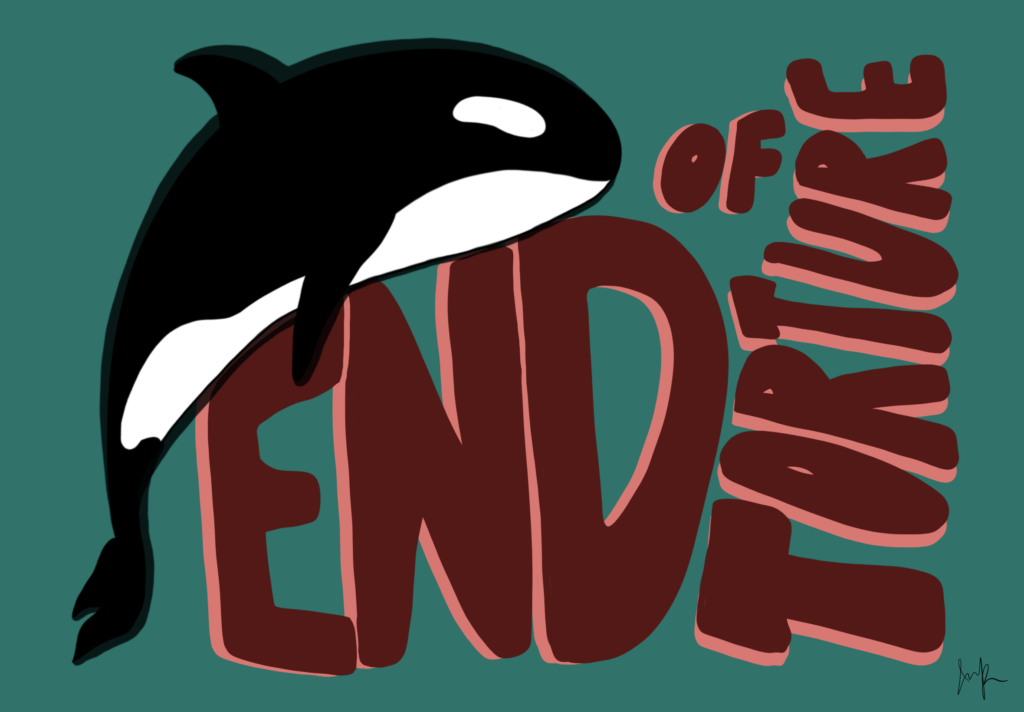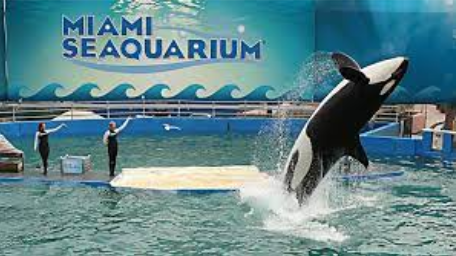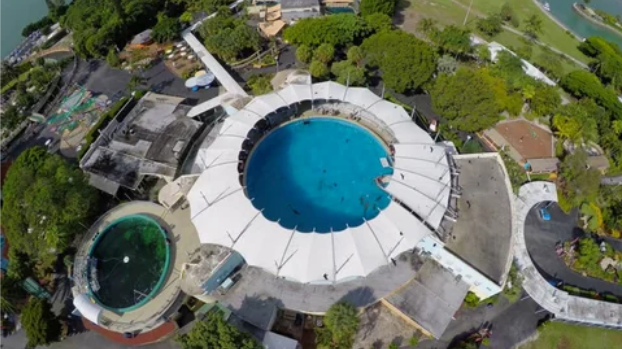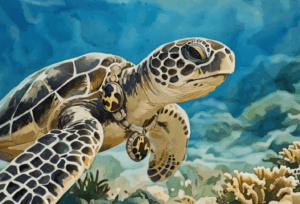
The Miami Seaquarium, owned by The Dolphin Company, was brought down from its facility after ongoing incessant acts of cruelty and relentless mistreatment towards animals.
Opened on September 24, 1955, the Miami Seaquarium was known for its unique interactions with guests through many parties, education, conservation, and marine shows. They’ve been receiving great feedback and have had more than 500,000 annual visitors. Out of many of their famous exhibits, the most loved exhibit was their orca shows. However, their seaquarium wasn’t only bright and happy after all. In fact, it was revealed to be devastating and horrendous.
The beloved Lolita, the female orca, has recently passed away due to the aquarium’s neglected care and unreasonably harsh training.
Lolita was captured when she was around three to six years old and purchased by the Miami Seaquarium for about $20, 000. She had been held in captivity there since September 24, 1970. She had an initial name, Tokitae (Toki for short), which translates to“nice day, pretty colors,” but was soon changed for easier reference for the audience to Lolita. Since her first day performing at the Seaquarium, she was loved and had always been the favorite orca.

Unfortunately, all that love and fame Lolita has received, there have been mistreatments that forced her to perform without her desires. A USDA inspection report in June 2021 released a public announcement describing the horrific acts of abuse, such as the jarring tricks Lolita was forced to do that resulted in a serious jaw injury and feeding her spoiled fish that resulted in inflammation in the bloodwork. Not only that, she was reported as having pneumonia, renal degeneration, and a chronic heart condition issuing the cardiac valves.
Aside from her health reports, the environment she was put into for over 50 years was disastrous and also the cause of all her terrible health states. According to federal inspection data and several interviews with former seaquarium veterinarians, it was confirmed that her living conditions were outdated, with expired water filtration systems and a deteriorating tank.
Due to this maltreatment and the rough environment Lolita was forced to live in, she suffered from gastric distress and unfortunately died on August 18, 2023, at the age of 57 (estimated). Despite her original name Tokitae, with the meaning, “nice day, pretty colors,” she sadly couldn’t have the life her name hoped for. The executive director of World Animal Protection, Lindsay Oliver, states: “She deserved the freedom of the open sea, not a life confined to a small tank. It’s time for this industry to end, so no more animals have to suffer like this. Swim free, Tokitae.” Just like Lolita, over 120 dolphins and whales have died in captivity, but that’s only an estimate.
Later, after a deeper inspection, the Miami Seaquarium was revealed for their other abuses and neglect, such as a 2-inch nail being found in a dolphin’s throat and many other cases. This eventually led the world’s largest animal rights organization, PETA (People for the Ethical Treatment of Animals), to protest by dumping nails outside the seaquarium, marking the beginning of the end for these animal prisons.
Thanks to all the supportive protests, The Miami Seaquarium has officially been identified as an animal-neglecting park. To completely end these cruelties, Miami-Dade County officials have finally issued a notice to leave the property entirely by April 21, 2024, following affirmations of deteriorating conditions and animal welfare issues.

Imagine being stuck in a crusty tank for 50 years, forced to perform hard tricks, and getting abused every day. Can you handle that?
There are several cases where animals at Seaquariums attack their trainers, mostly orcas, who are also known as ‘killer whales’. Although the name includes ‘killer’, there are no documented reports of wild, free-living orcas ever having intentional attacks on humans. However, in captivity, there have been a total of 4 deaths and several other cases. According to BBC Wildlife Magazine, James Fair states: “The name ‘killer whale’ derives from ‘killers of whales’, not killers of people.” On that point, why are we still having cases of orcas attacking or killing humans? Well, given the stressful conditions that they are forced to live in, wouldn’t you agree they could be triggered to show sudden aggressive attacks?
With the hope of these miseries ending, one must understand that animals aren’t a product or any form of entertainment. They are creatures just like us. Before doing something to an animal, why don’t you think and imagine how you would feel if you got that treatment?
The views and opinions expressed are those of the authors and do not necessarily reflect nor represent the Earth Chronicles and its editorial board.




